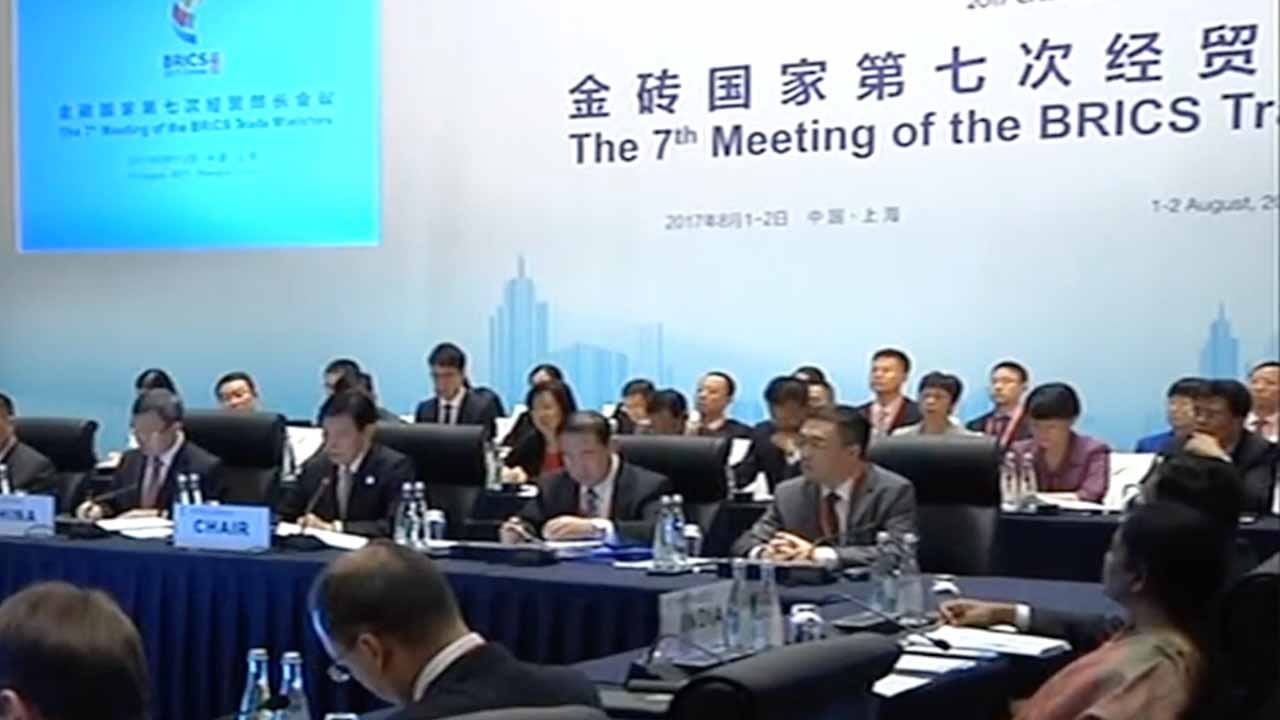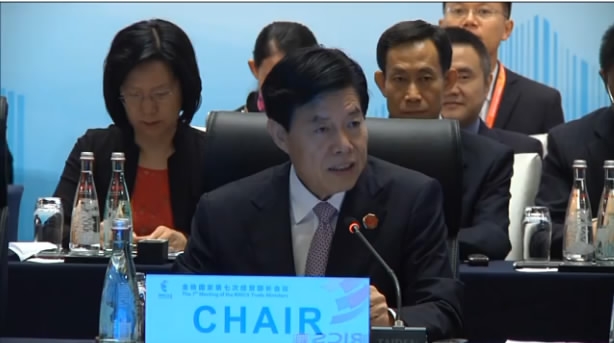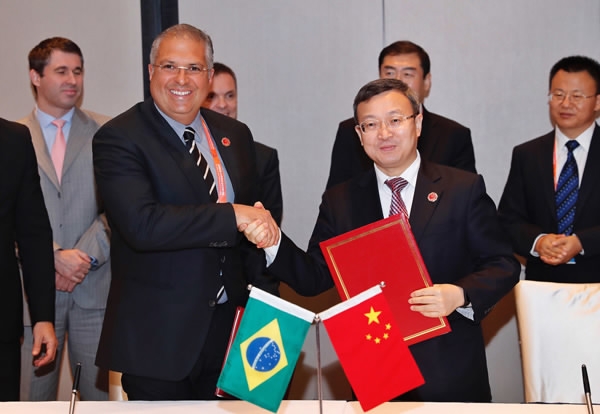
Business
13:48, 02-Aug-2017
BRICS trade minister meeting held in Shanghai

The two-day BRICS Trade Ministers Meeting held in Shanghai is one of the preparatory sessions ahead of the BRICS leaders meeting next month in east China’s Xiamen City, Fujian Province .
Trade ministers from the five countries will discuss topics including trade and investment facilitation, enhancing economic and technology cooperation, as well as supporting a multilateral trade system in Shanghai.
"We hope that BRICS countries can further expand their cooperation with economies related to the Belt and Road Initiative. This will help face down the challenges brought by the uncertainties of the global economy and generate new growth momentum," said Zhong Shan, China's commerce minister.

Zhong Shan, China's commerce minister in a preparatory session of the upcoming BRICS Trade Ministers Meeting /CGTN Photo
Zhong Shan, China's commerce minister in a preparatory session of the upcoming BRICS Trade Ministers Meeting /CGTN Photo
Vice-Minister of Commerce Wang Shouwen said while protectionists have doubts about multilateral trade, BRICS countries, as major developing economies, can tackle the skeptics as a united team and build a sufficient trade mechanism.
"China will further open its market to other BRICS countries and increase imports, as they are highly complementary in trade," said Wang.
China and Brazil signed a memorandum of understanding on Tuesday to diversify service trade to upgrade their commerce structure from commodity and goods exchanges.

Vice-Minister of Commerce Wang Shouwen (R) shakes hands with Marcelo Maia (L), secretary of commerce and services at Brazil's Ministry of Development, Industry and Foreign Trade, at the MOU signing ceremony in Shanghai on August 1, 2017. /China News Services Photo
Vice-Minister of Commerce Wang Shouwen (R) shakes hands with Marcelo Maia (L), secretary of commerce and services at Brazil's Ministry of Development, Industry and Foreign Trade, at the MOU signing ceremony in Shanghai on August 1, 2017. /China News Services Photo
The MOU, or the Two-Year Action Plan, is designed to encourage the two countries to improve service trade in eight areas including engineering, architecture, e-commerce, banking automation and tourism, to enrich bilateral trade ties over the next two years.
"Signing this Two-Year Action Plan will help Brazil build a modern service sector, as well as create new e-commerce and financial activities to boost the economy," said Marcelo Maia, secretary of commerce and services at Brazil's Ministry of Development, Industry and Foreign Trade.
The plan is expected to provide experiences for BRICS countries to promote services trade cooperation.
1074km

SITEMAP
Copyright © 2018 CGTN. Beijing ICP prepared NO.16065310-3
Copyright © 2018 CGTN. Beijing ICP prepared NO.16065310-3